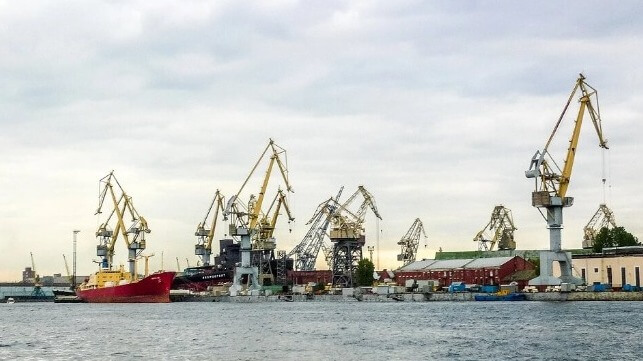After Ukrainian Attack, St. Petersburg Moves Ammonium Nitrate Out of Port

Amidst a regular drumbeat of Ukrainian drone attacks on Russian infrastructure, the Port of St. Petersburg has decided to halt the handling of ammonium nitrate, a common fertilizer that also doubles as an explosive. An explosion involving the same substance leveled half the port of Beirut in 2020.
According to Kommersant, after the Ukrainian drone strikes on Ust-Luga in January, St. Petersburg's governor feared that a similar attack on the ammonium nitrate transfer terminal could cause a disaster. The St. Petersburg terminal normally handles about three million tonnes per year, and - if ignited - a commercial quantity of the substance could potentially generate a devastating blast.
This category of cargo will likely be shifted to Ust-Luga, once the preparations are made to receive it. In the interim, reports Kommersant, there is enough demand on the domestic market to absorb the supply without exports.

that matters most
Get the latest maritime news delivered to your inbox daily.
Russian Railways has also restricted the transport of ammonium nitrate to several switchyards in the St. Petersburg area, according to Ukrainska Pravda.
Ammonium nitrate has a long history of causing serious industrial accidents. The Port of Beirut blast killed about 200 people in 2020; the Texas City blast of 1947 killed more than 500; and the massive Tianjin explosion of 2015 - caused by a combination of ammonium nitrate and other substances - killed 173 people and caused $1.5 billion in insured damages, plus another $9 billion in supply chain damages and lost profits.
